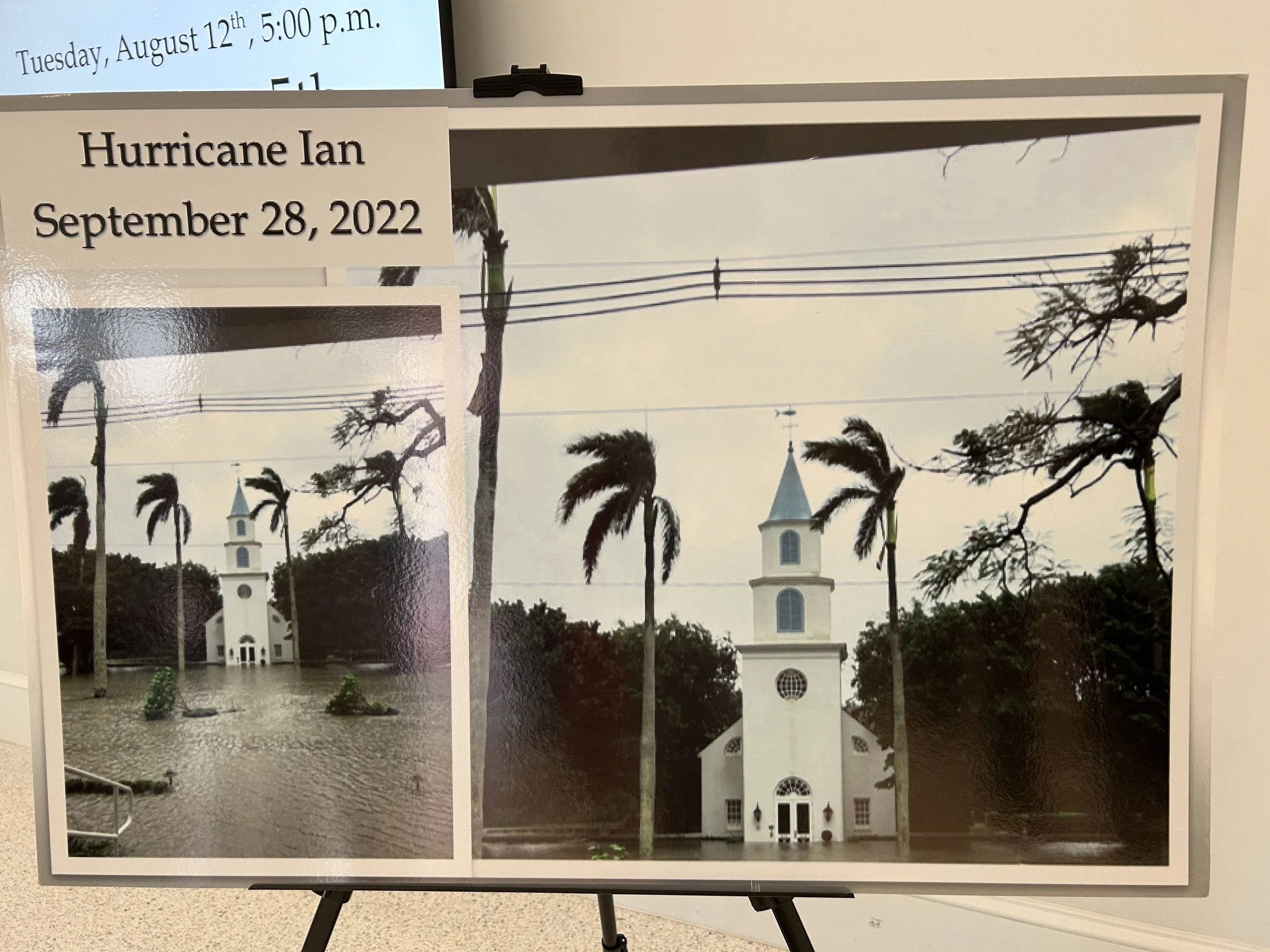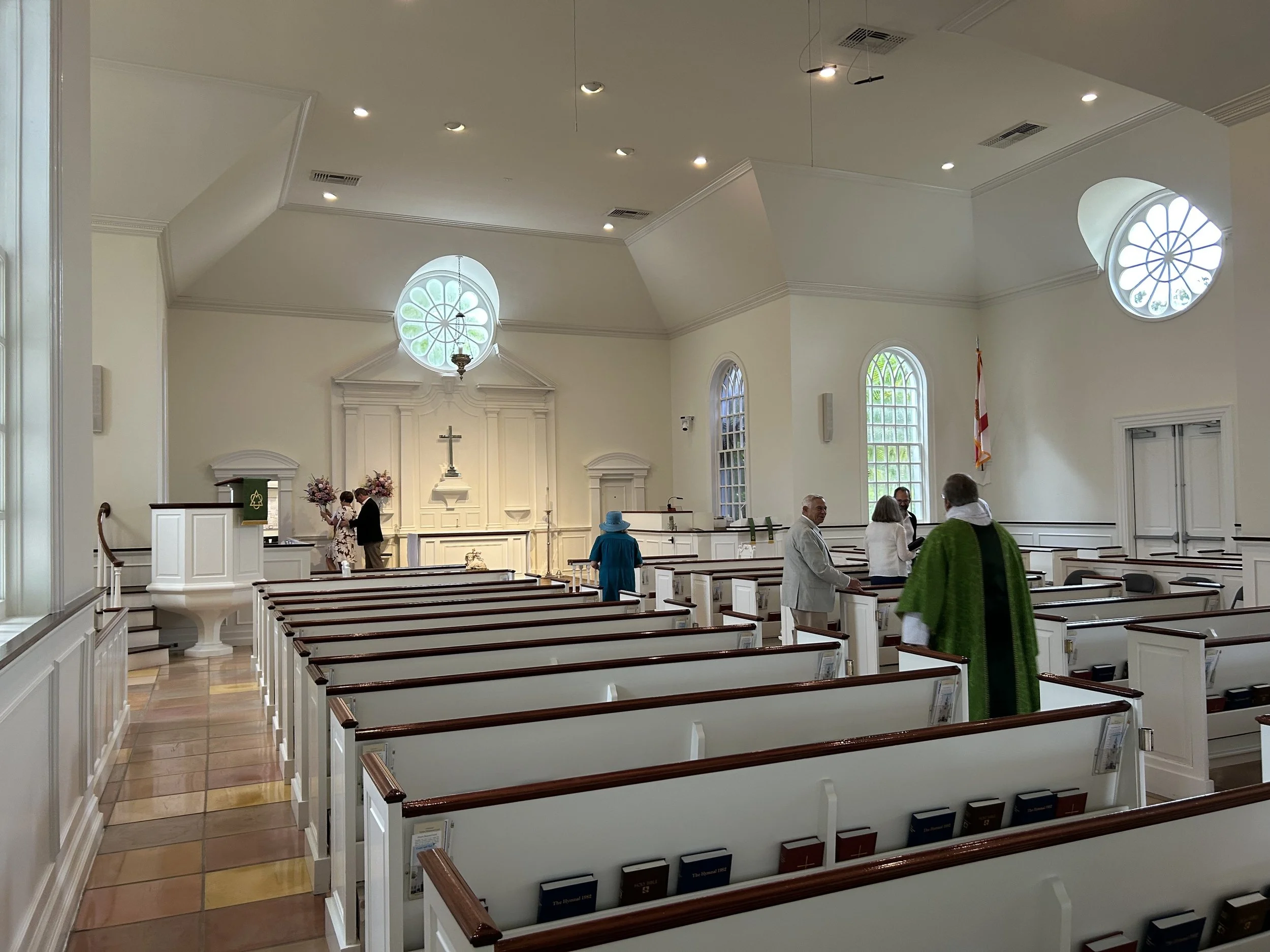Walk Together in Faith
The church is much more than what happens on Sunday morning, but for a parish musician, Sunday morning is akin to a college football game day. Most of what I do during the week – practicing, planning, and preparing - points to Sunday morning. The excitement of Sunday often makes it hard for me to sleep well on Saturday night and when I wake up on Sunday morning, I am an emotional mix of anticipation and anxiety.
There are so many little things that can quickly alter Sunday’s musical offerings. A tenor wakes up with a scratchy throat and cannot sing. A soprano needs to take their dog to the emergency veterinarian. A bass misses the morning rehearsal but suddenly appears in time for the anthem. A chorister loses their music just prior to singing the Psalm. In the middle of a voluntary, I realize that I didn’t dedicate enough time practicing that difficult virtuosic passage. The alternate harmonization that I had worked out does not lift the congregation in the way that I had hoped. That prayerful and delicate prelude was overwhelmed by the morning chatter of a particularly exuberant community that is simply and beautifully expressing the joy of being together.
Some Sunday morning frustrations are not human related. A pipe on the organ suddenly decides that it doesn’t want to speak properly, and the obligato line I wanted to highlight during the anthem doesn’t turn out to be as beautiful as I had dreamed. As the organ keydesk is hidden from the congregation by a wooden screen that separates me from the congregation and liturgical movements, I rely on a small digital monitor to show me what is going on in the nave. I cannot tell you the number of times that at some small important moment during the service, the camera suddenly decides to stop working. That’s when the altos get a look of panic from me and my loud stage whisper of, “Hey, can you tell me…please.”
There are as many “yangs” to the “yins” listed above. I love the surprise of the choir member that had signed out for Sunday but suddenly appears because a change of plans made them available. I love when the congregation soars with its song in a way that overpowers the organ and lifts our spirits to something akin to the music of heavenly choirs. I’m always moved when I learn that the music that has been offered has had a profound healing presence for a parishioner. I love when a visitor greets me with a desire to join the choir. I love when I play at the top of my ability.
In the summertime I have the gift of a few Sundays of rest when I can worship with my family. On those Sundays, I can set aside my weekly anxieties and just be present with the Lord. Those Sunday mornings tend to be in one of two places, either attending my wife’s family church in Alabama or if we are at the beach, as we have been this week, attending Trinity-by-the-Cove Episcopal Church in Naples, FL.
Trinity-by-the-Cove worships in a small, but beautiful white church building constructed in 1953. Its Cuban tile floors and white interior create a cheerful and pleasant ambiance. The acoustic equally supports choral music, the organ, and the spoken word. Unfortunately, the church was inundated by hurricane tidal surge in 2022 and in 2024, causing extensive damage and disruptions to its operations. On both occasions, the church worked hard and fast to repair and reopen their buildings, however, the two major flooding events prompted the parish to reassess their current facilities. This spring, the vestry unanimously voted to tear down the current church building and rebuild it in the same location, but five feet higher in elevation. It is a bold and amazing plan, but after examining many alternatives, the right choice. It allows the parish to continue to minister in the community that birthed it, it allows the parish to eliminate all the challenges of a 72-year-old building and the major retrofits that were going to be required, it allows the parish to greatly reduce the church building’s flood hazard, and it allows the church to continue what it has always done, “to pursue excellence – in its worship, formation, music and facilities.”
As my family and I worshipped there on Sunday I took note of the fact that it would be one of the last times I’d be in the building before it would be replaced. I thought of all the important life moments that have happened in that place for countless people. I thought about all the times that the community gathered around the table. Mostly though, I thought about how the building had allowed for people to gain and nourish and cultivate the faith. It had served its mission and now a new one will do the same.
On Sunday, the Rev. Stephen Zimmerman, the Assisting Priest, delivered the homily. It was good to see him in the pulpit again as his wife Kathy had passed away this spring. His academic sermon was an interesting exploration of using AI technology to answer theological questions. It was a fascinating sermon that touched on the movie The Neverending Story, the Alice in Wonderland books, and a huge variety of topics. (In the middle of the sermon, while working to keep my one-year-old son August calm and quiet, I realized that I must submit an application for sainthood for my wife Amanda, who manages August alone most Sundays.)
While I would recommend Rev. Steve’s entire sermon for your consideration, I found the following excerpt to be on my mind this week.
“Why does Jesus say, ‘Don’t be afraid?’ Because fear is the default human response to the unknown, the divine, and the transcendent. So the command, ‘Don’t be afraid’ is not just comfort, it’s invitation. Fear blocks faith, it narrows our vision, makes us cling to control, and resist the unknown. Faith requires openness, to believe, to hope, to imagine a better country…we must loosen fear’s grip. Presence is transformative. As with Physics’ uncertainly principal, the attitude of the observer shapes reality. ‘Don’t be afraid’ is a call to be present, not paralyzed. ‘Don’t be afraid’ is the threshold phrase, the verbal portal that precedes revelation, transformation, and calling. It’s Jesus’ way of saying, you are about to step into something bigger than you are. Don’t shrink. Step forward.”
I have reviewed this bit of homiletic brilliance several times this week. The words are a comfort and an invitation for the people of Trinity-by-the-Cove as they prepare to make major changes to their campus. The words are a comfort and an invitation to me, as even in these days of vacation, I cannot help but make plans for the new programmatic year. The words are a comfort and an invitation for our parish as the vestry creates plans for our future in response to The Century Project.
Be present, not paralyzed.
Step into something bigger than yourself.
Don’t shrink.
Step forward.
When Fr. Steve mailed the parish of Trinity-by-the-Cove this April about the death of his wife, he concluded his note the same way he ended his sermon on Sunday.
“And, I know that faith does not mean believing that nothing bad will happen. It means believing that no matter what happens, in the end it will not be bad.” - The Rev. Steve Zimmerman
As our parish journeys forward, we walk together in faith – to be open, to believe, to hope, and to imagine. Our parish certainly knows that bad things do happen, but I take great comfort in the words expressed by Fr. Steve, “that no matter what happens, in the end, it will not be bad.”



